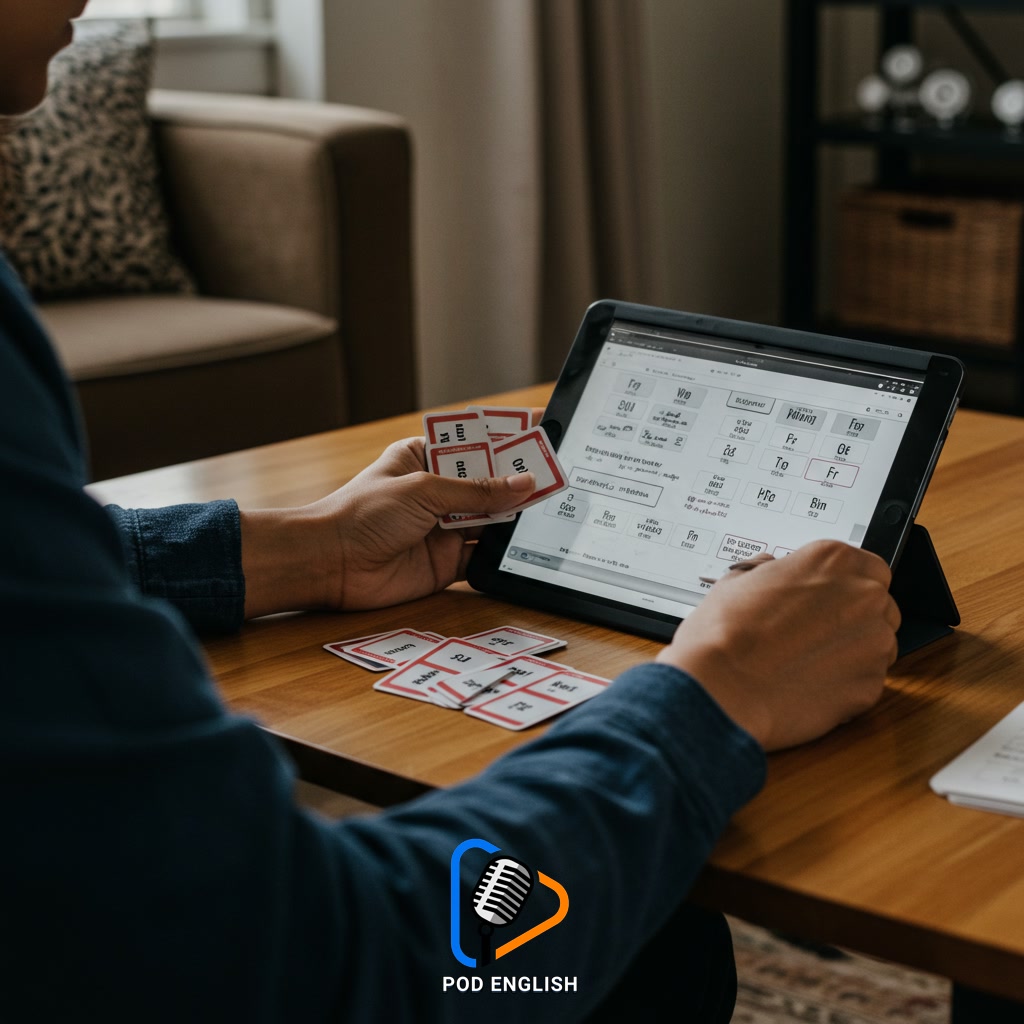Learn English
Master Your Daily English Vocabulary: Effective Strategies for Studying English

This resource explores effective methods for mastering daily English vocabulary. It presents practical strategies for individuals seeking to enhance their language skills through effective studying. The content focuses on building and retaining essential words for everyday use. By applying these techniques, users can significantly improve their English proficiency.
Table of Contents
- Section 1: Why Daily Vocabulary is Crucial for English Fluency
- Section 2: Understanding Effective Learning Principles for Vocabulary
- Section 3: Practical Strategies for Daily Vocabulary Acquisition
- Section 4: Leveraging Resources and Tools for Vocabulary Study
- Section 5: Integrating New Vocabulary into Your Daily Life and Practice
- Section 6: Review Techniques to Ensure Long-Term Retention
Section 1: Why Daily Vocabulary is Crucial for English Fluency
Mastering daily English vocabulary is absolutely fundamental to achieving fluency. Think of these words as the essential building blocks of the language you use every single day. Without a solid foundation of common words and phrases, it becomes difficult to understand everyday conversations, express your basic needs, or participate effectively in social interactions. While grammar rules and complex sentence structures are important, they are less useful if you lack the vocabulary to fill them. Knowing daily words allows you to connect ideas, follow discussions, and feel more confident when speaking and listening. It’s the practical language you need for shopping, ordering food, asking for directions, and engaging in casual chats. Focusing on this practical vocabulary accelerates your progress and makes learning other aspects of English much more accessible and rewarding.

Why Daily Vocabulary is Crucial for English Fluency
Section 2: Understanding Effective Learning Principles for Vocabulary
To effectively master daily English vocabulary, it’s crucial to understand how learning and memory work. Effective vocabulary acquisition isn’t just about rote memorization; it involves engaging with words in meaningful ways. Principles like active recall, where you test yourself frequently rather than just rereading, significantly strengthen memory retention. Spaced repetition, reviewing words at increasing intervals, prevents forgetting. Learning words in context, such as within sentences or real-life situations, helps you grasp their meaning and usage more deeply than isolated lists. Connecting new vocabulary to words or concepts you already know builds a stronger network in your brain, making retrieval easier. Consistency in study is also key; regular, focused practice is more effective than sporadic cramming. By applying these research-backed principles, you transform vocabulary study from a passive task into an active, efficient process that leads to lasting knowledge.

Understanding Effective Learning Principles for Vocabulary
Section 3: Practical Strategies for Daily Vocabulary Acquisition
Moving beyond simple memorization, effective vocabulary acquisition involves actively engaging with new words in practical ways. One powerful strategy is contextual learning, where you encounter and understand new words within sentences or real-life situations, making their meaning and usage clearer. Regularly using techniques like spaced repetition and active recall helps solidify words in long-term memory; instead of passive reading, challenge yourself to retrieve words from memory or use them actively in speaking or writing. Creating personalized examples, using flashcards (digital or physical), and reviewing previously learned words consistently are fundamental practices that transform passive knowledge into active, usable vocabulary for daily communication.

Practical Strategies for Daily Vocabulary Acquisition
Section 4: Leveraging Resources and Tools for Vocabulary Study
Following on from contextual learning, maximizing your vocabulary growth also means strategically utilizing various resources and tools available today. This includes traditional methods like using dictionaries and thesauruses, both in physical and digital formats, to deepen your understanding of word meanings, synonyms, and antonyms. Modern technology offers powerful aids such as vocabulary-building apps that use spaced repetition systems (SRS), online flashcard platforms, language learning websites, and even interactive games. Incorporating these tools can make studying more engaging and efficient. Furthermore, don’t overlook authentic materials like books, articles, podcasts, and videos, which provide rich contexts for encountering and reviewing words in natural usage. By combining different resources, you create a comprehensive and dynamic approach to mastering new English words.

Leveraging Resources and Tools for Vocabulary Study
Section 5: Integrating New Vocabulary into Your Daily Life and Practice
Once you’ve identified and studied new vocabulary using various resources, the crucial next step is active integration into your daily routine. Don’t just passively learn words; actively use them! Try incorporating new terms into your conversations with others, whether native speakers or fellow learners. Start writing short sentences or paragraphs using the words in a journal or emails. Thinking in English and mentally applying new words to objects or situations around you is also highly effective. Set yourself reminders to review and use specific words throughout the day. Regularly revisiting flashcards or digital vocabulary apps reinforces memory. The more you actively practice using new words in real-life contexts, the stronger your retention will be, making them a natural part of your English.

Integrating New Vocabulary into Your Daily Life and Practice
Section 6: Review Techniques to Ensure Long-Term Retention
After actively using new vocabulary, the next essential step for lasting mastery is consistent review. Simply using a word once isn’t enough to lock it into your long-term memory. Effective review techniques, such as spaced repetition, are crucial. This involves revisiting words at increasing intervals over time – just as you’re about to forget them. Utilize flashcards, digital apps designed for spaced repetition, or simply schedule regular self-testing sessions. Regularly engaging with previously learned words reinforces neural connections and ensures they remain readily accessible for both comprehension and active use in your daily English conversations and writing. Make review a non-negotiable part of your vocabulary learning routine.

Review Techniques to Ensure Long-Term Retention













